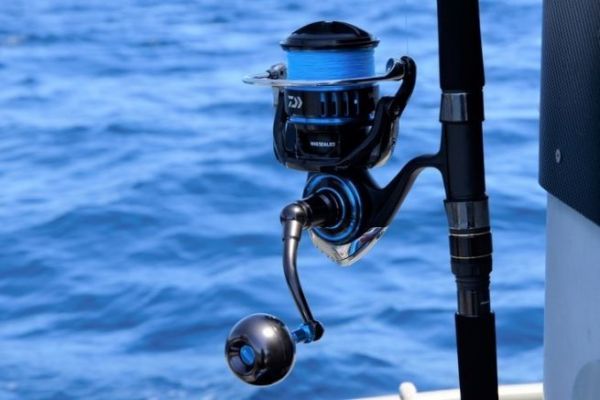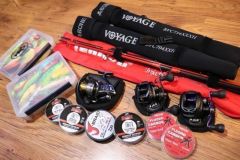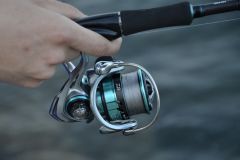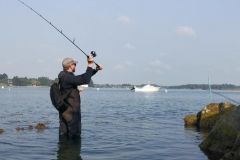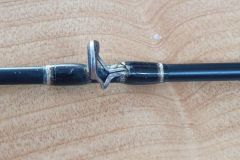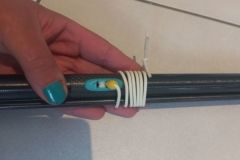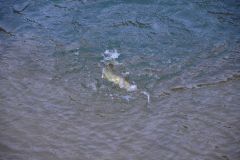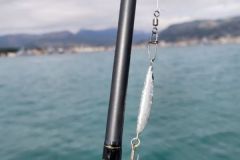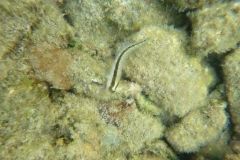Rinsing
Equipment rinsing is extremely important if you're fishing in the sea. Salt is the worst enemy of many of the materials that make up reels, rods and lures and must be removed quickly after an outing. To rinse lures, immerse them in a bath of lukewarm water, which will quickly dissolve the salt. Dry them thoroughly in the open air or with a cloth, and make sure they are completely dry when you put them back in the box to prevent the hooks from rusting.
For rods, run under fresh water at room temperature and dry before storing. For reels, first apply the fighting brake to prevent the ingress of fresh water, rinse with fresh water without pressure (a tap or shower works perfectly), then wring out the reel by shaking lightly. Don't wring it out, as this may cause water to seep in where it's not supposed to.
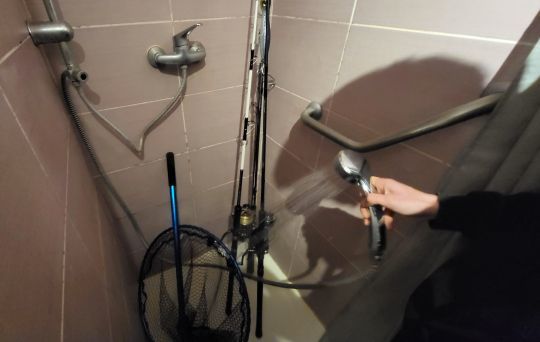
Fishing tackle storage
Proper storage of your fishing tackle is undoubtedly one of the main conditions for keeping it in good condition for a long time. As with food, tackle does not like large temperature differences or high ambient humidity. Choose rooms in the house where the temperature is most stable throughout the year, to avoid summer heat melting plastics or winter humidity creating mould and oxidation.
The sun is also very bad for equipment, as UV rays greatly accelerate the ageing of plastics. The line contained in a reel spool must be protected from the sun if you don't want to change it every year.
Avoid rust
Any sea angler who has not been conscientious enough when rinsing or storing his tackle knows the problem of rust. Even a very lightly rusted hook can deteriorate very quickly if not cleaned. It should also be kept away from other hooks, especially new ones, to prevent rust from spreading and contaminating all lures.
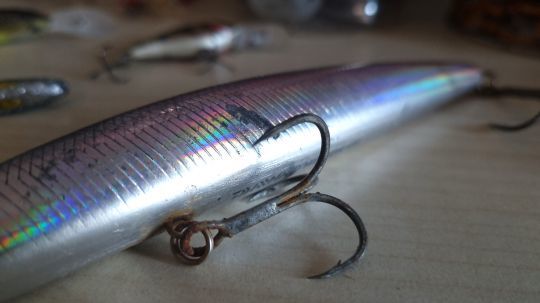
Some rods and reels can also suffer from rust, although metal parts tend to create a verdigris layer, which will of course spread if not cleaned.

 /
/ 